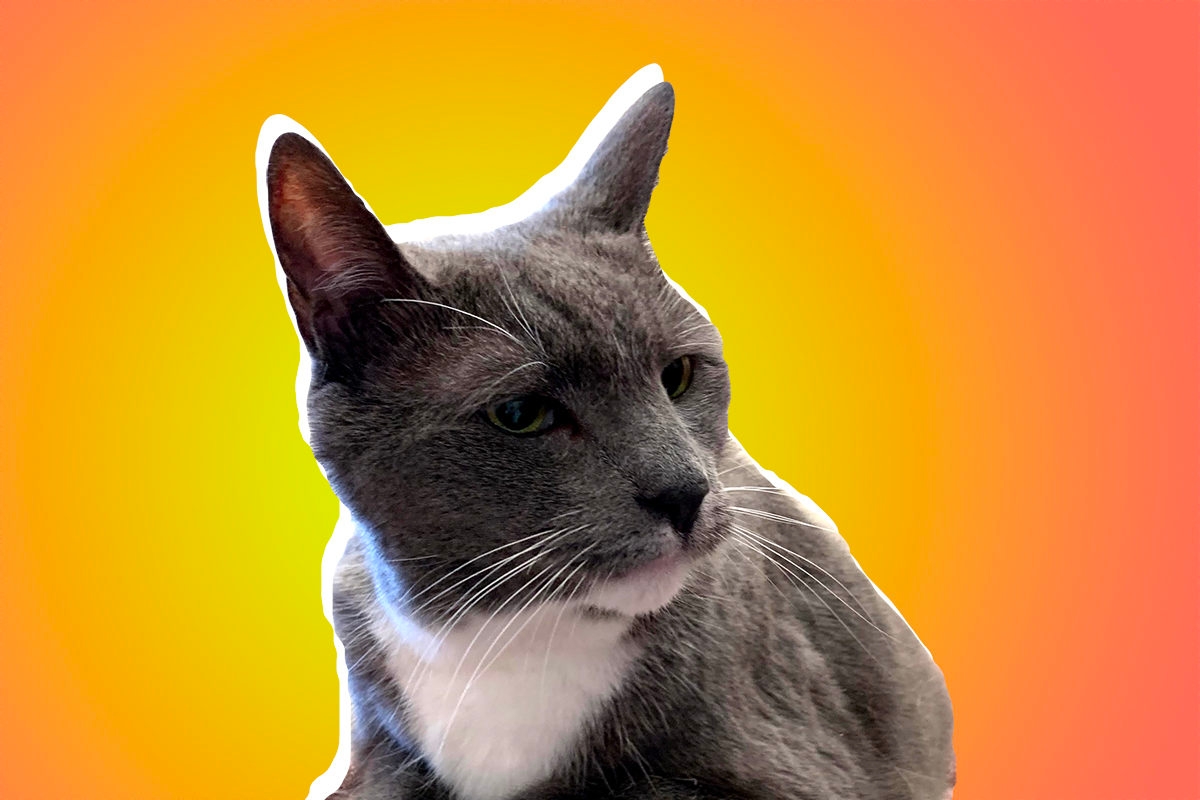The tiny exam room smelled like antiseptic and dog breath. My husband sat next to me, holding my hand as I glanced anxiously at the door, waiting for the vet to rejoin us. Our children sat in the waiting room, uncharacteristically quiet and still.
Finally, after a seemingly endless wait, the vet came in to speak to us. I couldn’t tell you exactly what he said, but I heard words like “kidney stones” and “blockage” and “surgery” and “pain” and “humane euthanasia.”
All at once, memories of moments with our 14-year-old cat, Sonny, came rushing at me. The three days it took my husband and me to choose our new kitten’s name. The time we lost him when he darted out the door; how we searched madly for him around our apartment building, and ultimately found him safe in the recycling bin. Sonny playing fetch with a little pink ball. Another emergency vet visit; another surgery recommendation and long recovery. Going into labor with my first daughter and not being alone; Sonny stayed with me for hours. Hearing both my babies say “Cat!” Nights spent with him curled at the foot of our bed, usually on my husband’s feet. Watching the girls play with him each day after school.
The room spun as I took in the news. I tried to breathe, to think. To plan what we’d tell the children.
The kind staff at the vet’s office let us use another empty exam room, and there we explained to our girls that Sonny would not be coming home with us. At 9 and 7, they could not imagine their lives without him. They started to cry, and we started to cry, and we held onto each other.
A vet assistant brought Sonny to us. We pet him and scratched gently behind his ears until he softly began to purr. Tufts of gray fur stuck to my fingers. We told him we loved him always. The girls and I left the room; my husband stayed with Sonny as he took his last breaths.
My husband emerged a few minutes later, looking tired. We headed home. The car ride was eerily quiet; the empty cat carrier rattled around the trunk.
Our dog tried to cheer us by barking and jumping on us the moment we opened the door. Drained by grief, we ignored him at first. He looked at each of us again, slowly inspecting our matching, tear-streaked faces. Glancing at the empty cat carrier, it was clear that he understood. He licked our cheeks and took turns snuggling into our laps.
My oldest daughter broke the silence. “Should we say Kaddish for Sonny the next time we’re in synagogue?”
I wasn’t sure how to answer her. Was there a Jewish way to mourn for a pet? So many of our rituals revolve around family, but those traditions assume that families are made up entirely of human beings.
I stuck with when I knew. “Mourners’ Kaddish is usually just for people,” I explained. “We can say it here if it’s important to you. But there are other things we can do.”
“Like what?” asked my younger daughter.
“The tzedekah box is pretty full,” my husband said. Both girls looked up.
Our youngest chimed in first. “Can we give the money to an animal shelter?” she asked.
“But they have to use the money to help cats like Sonny,” our eldest specified. We all agreed this was an excellent idea.
Our cat had been adopted from a rescue organization, and I was pleased to discover that they still existed. So, we chose to make a donation to that group. Within a few days, we had exchanged our tzedekah change for bills. The girls had tucked the money into cards they had made.
Instead of mailing a check, I thought we should go there in person, even though I knew it would be hard. I wanted to personally thank the volunteers for all their work — without them, cats like Sonny would have had very different lives.
So, the following weekend, we drove to the adoption center. One of the rescue directors introduced herself. The girls handed over their money-filled envelopes, and we gave them a full box of litter and the carrier as well. Kittens and cats ambled about the room, some playful, some skittish. The girls’ moods instantly lifted.
We stayed to play for about 15 or 20 minutes, and then we headed home. “How do you feel?” I asked my older daughter.
She took a moment to answer. “Still sad,” she said, glancing up at me. I stroked her hair. “But I think we helped other cats. So maybe I’m a little bit better.”
I nodded, relieved.
After Shabbat, I spoke to our rabbi, who kindly provided us with a prayer to say in memory of pets that have died. We thanked God for creating animals and for giving us the ability to love them. We thanked God for entrusting Sonny to our care and for the years we spent together.
And I thanked God for all the people that understood that grief for a pet is real. Sonny was not “just a cat.” He was part of our family. He was a blessing.
Image of Sonny the cat courtesy of the author








